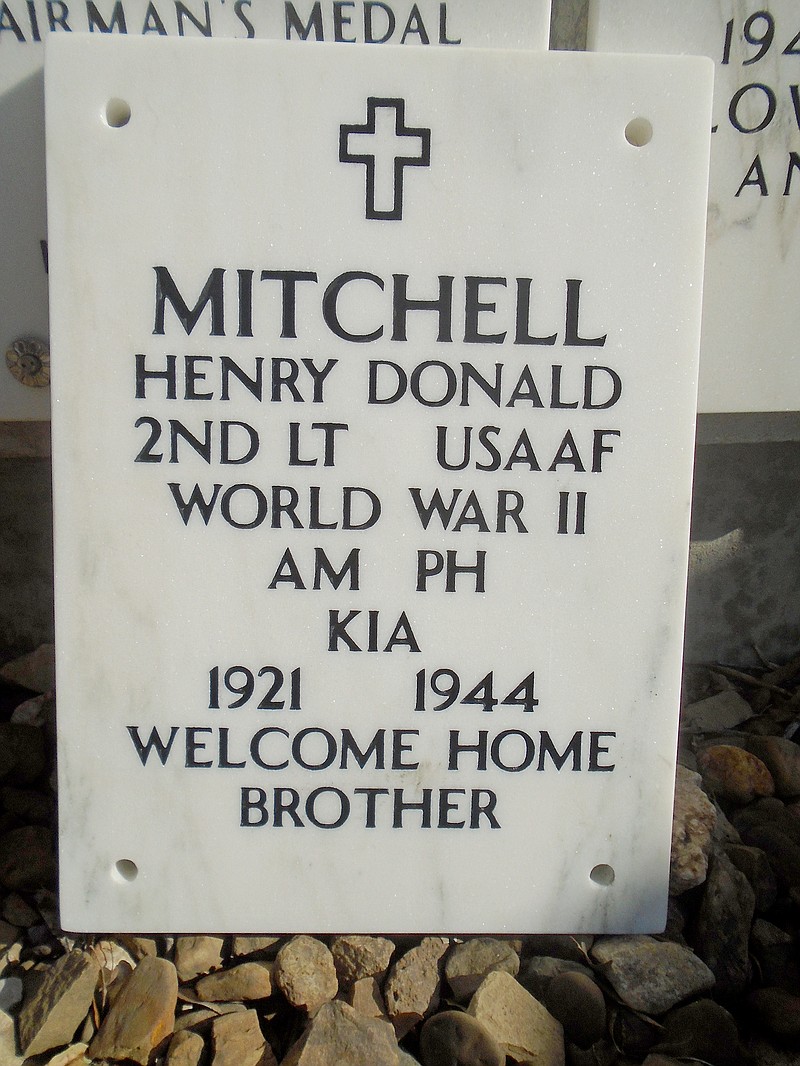I got to the National Cemetery in Fayetteville early. I wanted to be there when the veterans' motorcycles came rolling in ahead of the hearse. Somehow I knew this is how it would go, though I hadn't been told. Around 9:15 a.m. the motorcycles did come rolling in, followed by the hearse.
But I got there early and walked around. There were the graves from the Civil War marked "Unknown" -- a reminder of a time when the American focus on trying to account for all war dead began. It wasn't just the catastrophic human costs of that war but the proximity of the lost to their families. Having a loved one killed and missing in a distant country in the 1800s left one powerless. But to live in Arkansas and to know that a husband, son or brother had been killed in Texas or Louisiana or Tennessee -- that prompted questions. Where exactly did he die? How did he die? Where is he? What's left of him? How can we bring that home?
These questions became acute in the waning days of the conflict in Vietnam. The POW/MIA flag that now flies every day in front of the post office was created in 1972. The Rambo movies of the 1980s responded to a national interest in those missing from war. In 1994 Muhammad Ali, a war resister decades earlier, went to Vietnam to bring attention to the issue.
The British have never had the commitment Americans have to bringing all remains of their war dead home. Managing a huge empire with conflicts around the globe, there was no way Britain could ever commit to such a mission. In the traditional British mind, wherever remains of their soldiers rest in Afghanistan, Malaysia, Korea or numerous other places, those are little parts of Britain.
The United States had an empire, but not a big one. The closest thing the U.S. had to a large colony was the Philippines, and the U.S. maintains a beautiful military cemetery in Manila.
Such are the things that passed through my mind as I walked around the National Cemetery last Tuesday morning, waiting to hear the rumbling of motorcycles in procession.
I happened upon the grave of Sombath Manivong, a Navy boatswain's mate who died in 2004, during operations in Iraq. I came across the grave of Brian Botello, a soldier killed in Iraq five years later. I saw others arriving for the ceremony--Vietnam veterans in leather vests and ball caps; older veterans who still fit into their military uniforms of yore.
We were there to welcome home Henry Donald Mitchell nearly 80 years after his plane went down over Austria in the Second World War. He played basketball and studied at John Brown University. He learned to fly on JBU's airstrips just southwest of campus. He got final grades of "B" in welding, chemistry and aviation classes. Bible and English classes brought grades of "C."
He dropped out of school in 1941. His P-38 fighter plane went into a forest, probably shot down, in 1944. His now 91-year-old brother Robert began asking questions in 1997. Then-Congressman Asa Hutchinson helped. Later, Congressman Womack helped. Senator Boozman helped. An Austrian club dedicated to finding downed WWII planes helped.
The property owner in Austria didn't help. For reasons no one knows, he would not allow excavation of the crash site. But he died earlier this year, and then his son helped. And the remains were found and quickly identified. They went to Tulsa and were met by military service members. And now they were coming to the National Cemetery in Fayetteville.
The motorcycles driven by Vietnam, Gulf War, Iraq, and Afghanistan veterans roared in. The hearse came in. The war veterans lined up with flags. The young soldiers of the Honor Guard did a splendid job. A chaplain spoke. The family received a folded flag. Heartbreakingly, someone's phone rang through most of TAPS.
I've seen a photo of the remains that were cremated and are now housed in a small crypt. They were bones. Whatever made Donald himself--his spirit, soul, mind, energy, way of being--wasn't there. And yet it seemed perfectly reasonable and good to say "welcome home" to a small box containing ashes of bones that had been buried 77 years in Austrian soil.
-- Preston Jones lives in Siloam Springs and oversees the website "War & Life: Discussions with Veterans" (warandlifediscussions.weebly.com). If you have wartime experience, photos or letters you are willing to share, contact [email protected]. The opinions expressed are those of the author.

